The oeuvre of the channel once known as Lifetime: Television for Women has historically been met with near-unanimous critical disdain. Lifetime’s films are commonly regarded as “kitsch,” “insulting and cheap,” belonging to the category of “guilty pleasure,” “running joke,” and “so-bad-they’re-good.” And rankings of Lifetime films typically extol not how good, but how bad they are, as in The Worst Lifetime Movies Titles of All Time. The channel has been tagged as “a place where ... former A-listers go to retire and D-listers dream of being discovered.” Urban Dictionary defines “Lifetime” as “a bad channel that 'inspires' women with stories about women with breast cancer that were molested as a child getting beat up by their alcoholic unemployed mullet husband.”
While Lifetime has always had a panache for marrying high and low culture, the channel has also told multifaceted, complex, even contradictory women’s stories long before “prestige” antiheroines were trendy. On Lifetime, women are strong; women are victimized. Women are sexual; women are violently sexualized. Women want a reflection of their own experiences; women want an escape from their own experiences. Women are committed to creating complex reflections of their own lives and stories; women wrote or directed 73% of Lifetime’s original films from 1994–2016. Lifetime’s always invested in female viewers, stories, and creators, but until public awareness of Hollywood’s entrenched misogyny crescendoed into a federal investigation, this priority went largely unheralded.
Since Lifetime’s acquisition by A&E Networks in 2009, the channel has mounted a successful effort to legitimize itself — 12 Emmy nominations in 2013, and 17 in 2014. This new legitimacy has hinged on two strategies: Lifetime’s prioritizing the hiring of women to write and direct their stories, and its witty, postmodern self-awareness of its own tropes. Put another way, while Lifetime originated a whole genre of “women’s entertainment” in the 1990s, 20 years later, it created a meta-genre of entertainment that comments on the conventions of “women’s entertainment,” by Lifetime and others.
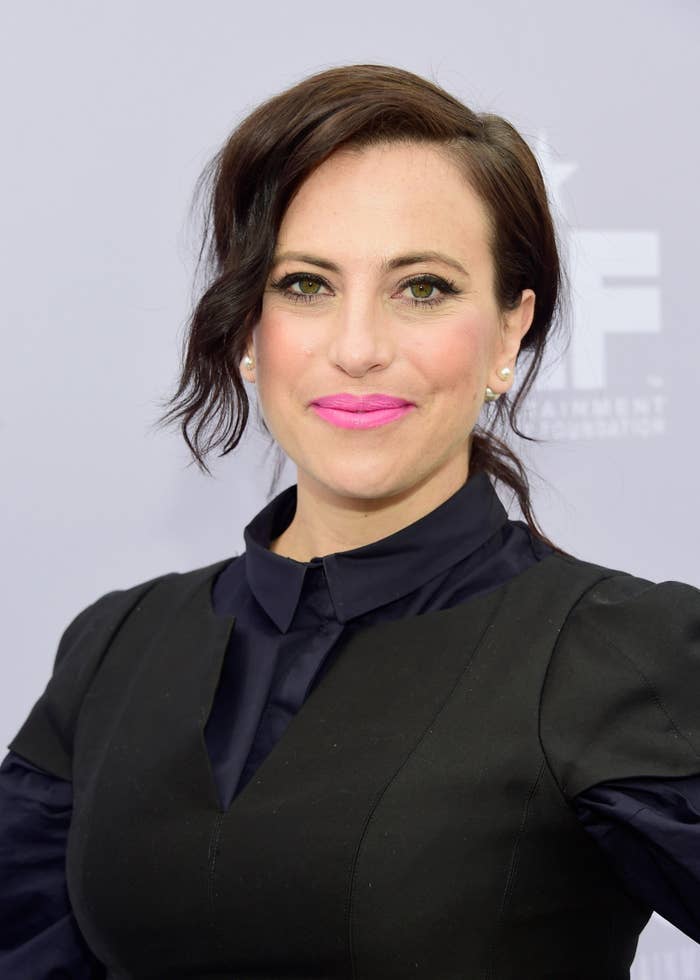
It’s a subversive strategy that has made Sarah Gertrude Shapiro and Marti Noxon’s Unreal a a sensation among critics — and which manifests in winking Lifetime films like A Deadly Adoption, directed by Rachel Lee Goldenberg and starring Kristen Wiig and Will Ferrell, and the upcoming 20th-anniversary remake of Mother, May I Sleep With Danger?, executive-produced by James Franco and directed by Melanie Aitkenhead. Lifetime’s evolved from a “place where former A-listers go to retire” into a channel with series whose female viewership exceeds that of prestige hits like Mad Men, and whose stars appear on the cover of Variety with the headline "Power. Players."
Surveying 25 years of the most influential Lifetime original movies and original, scripted TV series, Lifetime emerges as a brand that has aged through a whole generation of feminism. In the 1990s, while Lifetime was still helmed by men and seeking male viewers, the channel became known for its fetishization of victimhood and tragedy. But since gaining its first female CEO in 1999, and especially since its 2009 acquisition by A&E Networks, Lifetime’s fought to expand that brand image into more explicitly feminist modes of radical female solidarity; body, age, and race diversity; and the championing of female talent both in front of and behind the camera. Critics have unfairly dismissed Lifetime as “trash TV,” but at its best, Lifetime has blended conventions of high and low art to challenge the lazy condescension of “trash” itself. Lifetime’s library serves as an anthology of gender as genre, one that is distinct from other modes of filmmaking, rather than a less successful iteration of them.
Even if Lifetime’s been labeled a “guilty pleasure,” millions of us have been watching it for decades. So to dismiss Lifetime’s brand, content, and viewership is to dismiss a media company for and by women worth almost $900 million. It is to dismiss the only channel on television whose top five original films of 2015 were all directed by women, at a time when women still direct only 7% of major films. Critics may have ignored the channel until Unreal, but Lifetime has been producing increasingly vanguard work on women’s issues, and building the strongest employment hub for women in major entertainment, for 20 years. Lifetime has long contributed to the mainstreaming of feminism, and now, feminism’s move to center stage has made Lifetime more relevant than ever.
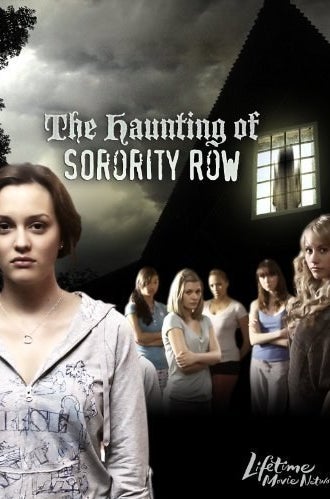
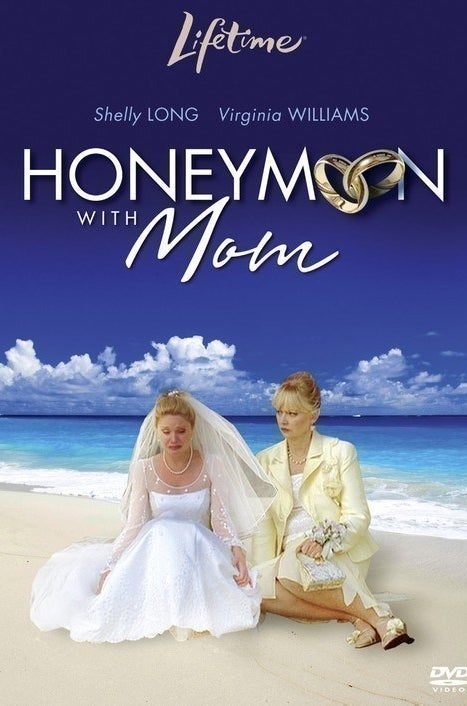

“Originally, a Lifetime movie meant the woman couldn't be saved by a man at the end,” Pat Fili-Krushel told the Huffington Post last year. It was she, hired by Lifetime’s first CEO Thomas Burchill in 1988, who conceived the channel’s “World Premiere Movies,” or original Lifetime films, and tried to set the tone for the channel during her tenure. As such, Lifetime’s films from 1990–1993 often featured a “strong and...altruistic” female “romantic crusader” confronting a “failure in the system.” Women, in the Lifetime of the 1990s, were much likelier to be running from a man than saved by one — but as feminism raised questions about the women-in-danger formula, an attempted shift away from the trope by the channel may have been eclipsed by the capitalist value of danger.
“We kind of had a push-pull internally, from tabloid to classy,” said Lifetime’s vice president of original movies, Arturo Interian. “And many times we erred on the tabloid side, or things that were a little more salacious; a little more women-in-jeopardy, because that was really doing it for us in the ratings.” This conflict at Lifetime was apparent in its first two original films, Memories of Murder (1990) and Wildflower (1991). Murder was a sensational thriller about a woman battling a killer and amnesia, while Wildflower, directed by Diane Keaton and starring Patricia Arquette and a young Reese Witherspoon, told a softer story of female solidarity. You can guess which was the bigger ratings performer.
In 1993, Fili-Krushel (Fili at the time) was passed over for CEO amid reports that her approach was “too feminist,” and 20–25 female employees were pushed out along with her. Douglas McCormick took the reins and ushered in Lifetime’s ‘90s brand of conflicted messaging. Though Lifetime led daytime cable networks in female 18–49 viewership by 1994, McCormick was also eager to reach its viewers’ husbands. This was partially because the Nielsen ratings system oversampled the key demographic of “cocooners” — code for upwardly mobile, white, heterosexual couples age 24–44 — by compensating for what the system assumed was a shared marital television. So while the network was rolling out the notorious tagline “Lifetime: Television for Women,” McCormick’s Lifetime was also courting men, as with its films based on the Spenser: For Hire male-detective TV series, or with The Good Fight, about a lawyer forced to collaborate with her litigious ex-husband to win a case.
TV movies were still big business in the '90s, and Lifetime’s acquisitions built capital by curating women in jeopardy.
It was amid these conflicting executive priorities that many of the most anecdotally popular, cultishly enduring "Lifetime movies” of the mid-1990s emerged. Many of these brand-defining films weren’t even produced by Lifetime, but cherry-picked after premieres on other networks, often NBC. TV movies were still big business in the '90s, and Lifetime’s acquisitions built capital by curating women in jeopardy. There was She Cried No and No One Would Tell, both starring Candace Cameron (1996); Friends ‘Til the End (1997), basically Single White Female with Shannen Doherty in the Bridget Fonda role; Perfect Body (1997), starring Amy Jo Johnson as an anorexic gymnast; The Babysitter’s Seduction (1996), starring a post-Mickey Mouse Club, pre-Felicity Keri Russell; Co-Ed Call Girl (1996), Tori Spelling’s second-best TV movie of 1996; and, of course, team leader Mother, May I Sleep With Danger? (1996).
Lifetime’s highest-rated original film of the 1990s belied a cultural influence that would extend well beyond the channel itself. Almost Golden: The Jessica Savitch Story (1995) earned 7.1 million viewers — it’s still the channel’s No. 1 most-watched original film — and its depiction of Savitch as a hubristic, complex, ambitious, and morally ambivalent TV news anchor foreshadowed antiheroines like Weeds’s Nancy Botwin and Homeland’s Carrie Mathison.
In 1999, lagging at sixth place in cable ratings, Lifetime hired Carole Black — its first female CEO. Black abandoned the “cocooner” strategy and targeted women directly with original, scripted, female-driven TV series like Strong Medicine, Any Day Now, and The Division, all featuring career-driven protagonists balancing personal and professional concerns. Black’s Lifetime prioritized social relevance over women in danger.
“Lifetime pioneered so many genres that ended up taking over television,” Rob Sharenow, Lifetime’s current executive vice president and general manager, told me of these foundational series. “The medical drama, we had that 20 years ago. The female cop drama, we had that back when no one was programming cable dramas.” But Sharenow was also quick to note “an incredible unfair bias ... about what Lifetime is,” overall. This bias “jaundices people’s view of what we do. There are certain projects that I think if you slapped someone else’s brand on it, the reception would have been completely different.”
Even so, Black’s strategy to push female-centric original series worked: By 2002, Lifetime became the top-rated channel on cable.
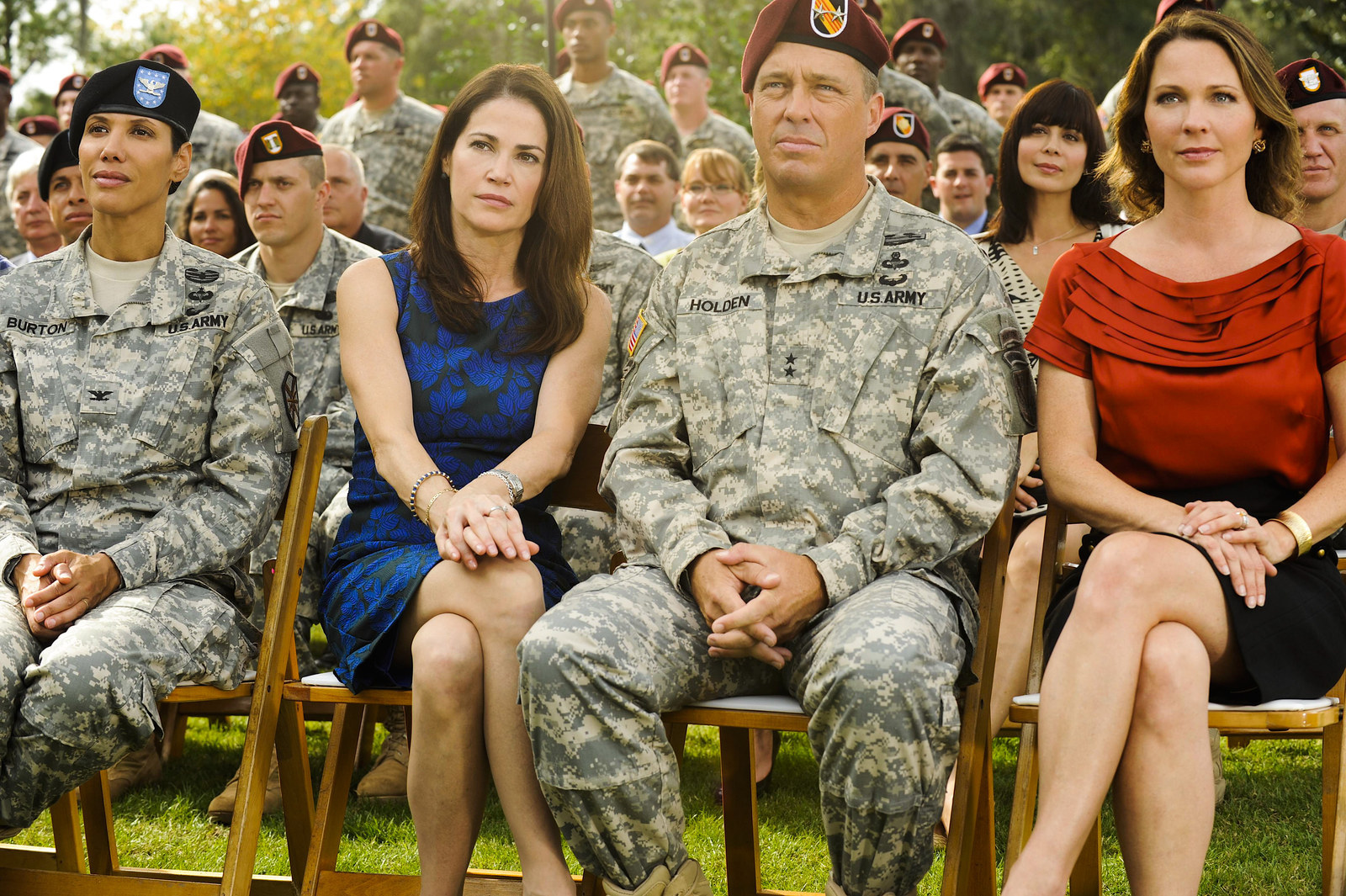
In 2001, Black announced a record increase in Lifetime’s programming budget to almost $700 million over the following two years — enough money to take some risks. In practice, this meant balancing popular soapy moneymakers — like 2004’s She’s Too Young, featuring the MVP line “I’m a 14-year-old sexpert!”— with meatier, more prestigious social-creative endeavors.
The most successful of these efforts featured female directors and writers and focused, in various forms, on feminist and LGBTQ issues. In 2002, the network adapted Joyce Carol Oates’ We Were the Mulvaneys, which was nominated for three Emmys. In 2004, Lifetime partnered with Showtime to acquire Speak, a haunting story of teenage date rape, from the acclaimed YA novel by Laurie Halse Anderson and starring a young Kristen Stewart. In 2006, Lifetime pushed years ahead of the public curve on transgender issues with A Girl Like Me: The Gwen Araujo Story, directed by cinema auteur Agnieszka Holland.
While Army Wives’ first season outranked critical darling Mad Men in female viewership, it received far less fanfare.
And then there was Army Wives. When the series premiered in 2007, it garnered Lifetime its biggest ratings to date: 3.5 million viewers watched the pilot, ranking it first in its time slot for Lifetime’s key demographic, women 18–49. Army Wives may have cast an escapist tone in its high-drama plotlines and sentimental center, but there’s no denying that the issues it addressed — a returning soldier battling PTSD, a military wife making ends meet for her own cash-strapped family by serving as a pregnancy surrogate for another — had real gravity.
While Army Wives’ first season outranked critical darling Mad Men in female viewership, it received far less fanfare. It just wasn’t the kind of “prestige” series recapped weekly by critics. (The A.V. Club called it “flavorless glop.”) But even if Army Wives didn’t truck in subtlety, its showiness didn’t replace cultural complexity: Its tableau of rippling flags, Walmart jeans, and honky-tonk bars also featured two major black characters, dealt with the uncomfortable class disparities on the base, and presented its heroines’ sexuality in frank terms. Army Wives portrayed an unpretentiously radical female solidarity that would become a hallmark of Lifetime’s 2000s programming.
Army Wives also didn’t glorify the military. As Ginia Bellafante commented in the New York Times, “at the heart of the show is a deep skepticism about the psychological impact of military culture on family life, a distaste for the brand of masculinity it breeds. The show never allows you to think that what you really want is a man in uniform.”
Army Wives’ record ratings indicated that messaging hit home with the middle-class American women ignored by “prestige” television. The political campaigns of Barack Obama and John McCain saw Army Wives’ second-season premiere in 2008 as an opportunity to reach those women: Both presidential candidates aired promotional spots for the premiere, reflecting how dramatically Army Wives had amplified the national conversation about military spouses’ service. In a new way, Lifetime was steering part of a national political conversation, and reaching a powerful, if often unheralded, demographic.
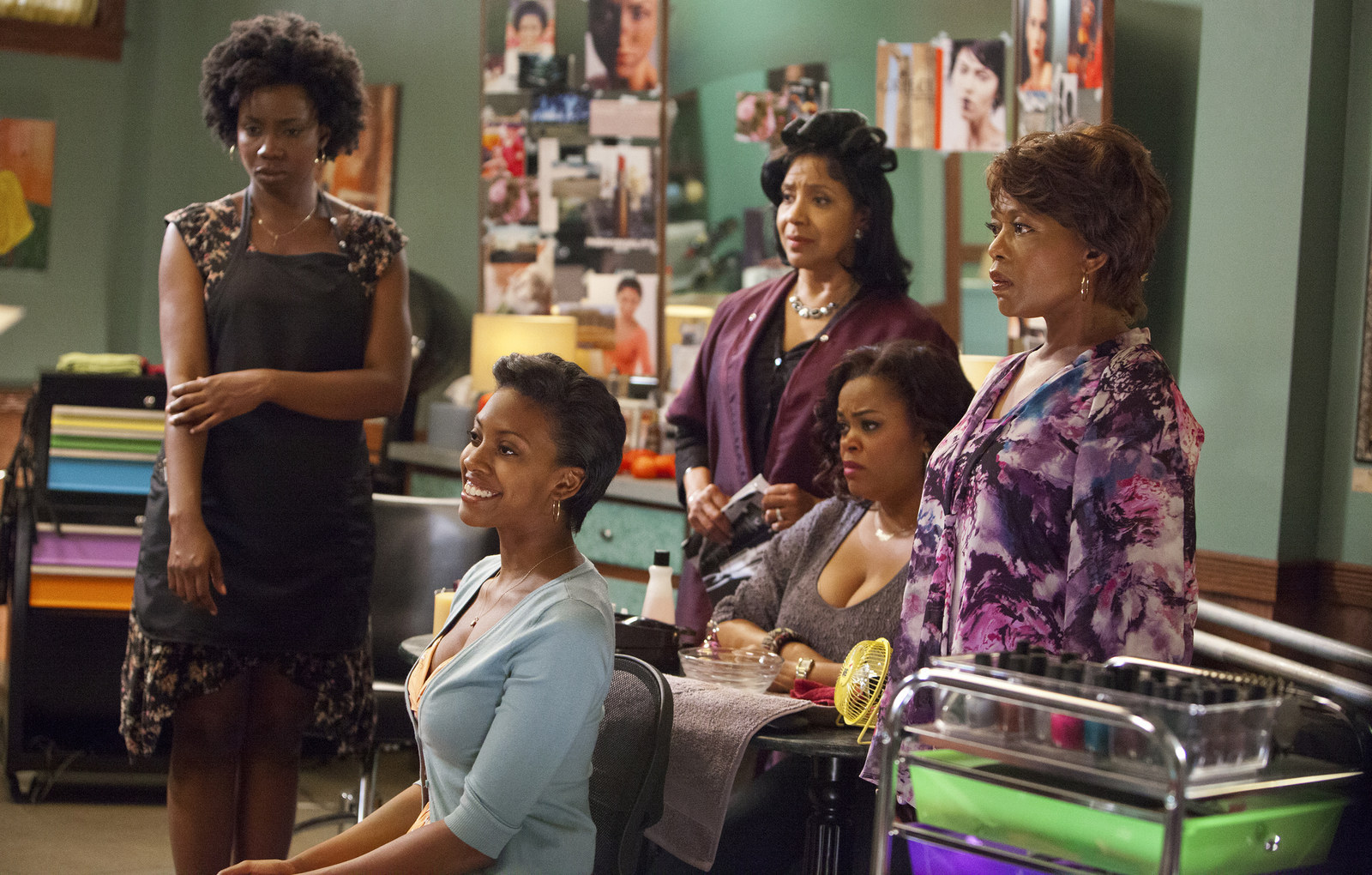
Army Wives helped elevate Lifetime’s status as a valuable commodity in the cable TV landscape, making it more attractive to buyers, which in turn brought new executive energy into the channel to change how, and by whom, Lifetime was viewed.
First, Lifetime Entertainment Services — Lifetime, Lifetime Movie Network, and Lifetime Real Women — was acquired by A&E Networks in 2009. Then A&E promoted Nancy Dubuc — “the show picker with the hottest hand in cable television” — from CEO of its History channel to become Lifetime’s second female CEO and president in 2010. Under Dubuc, Lifetime’s new executive team launched an aggressive strategy to remake the channel’s image.
“I wanted Lifetime to be more in the bullseye of pop culture, first and foremost,” Sharenow told me. “I really wanted to force the conversation about Lifetime into more of the mainstream pop culture, not in this Lifetime ghetto.”
Lifetime had to get millennial: younger, more racially inclusive, more explicitly feminist, and a lot more hashtaggable. And as ‘90s nostalgia swelled in 2010s pop culture, Lifetime also found itself uniquely well-positioned to reflect on its own contributions to that decade — to make a kind of postmodern, meta-wink at the culture with new projects that blended conventions of high and low, past and present.
Steel Magnolias dedicates itself to the ways women form around each other in poses of radical solidarity.
On the original-films side, Tanya Lopez, SVP of original film programming since 2007, said, “We looked at lifting the production values. We said, people are expecting more out of us, they should expect more out of us. We should expect more out of ourselves. It was really this cathartic transition where we raised the production value, made the stories more complex, really didn’t dumb things down for our audience, and they rose to the occasion too.”
“The aha moment” of revamping Lifetime’s original movie programming, Lopez continued, came with 2012’s all-black remake of Steel Magnolias. The significance of Steel Magnolias as a watershed for Lifetime’s new direction is hard to overstate: The film, directed by Kenny Leon and starring Queen Latifah, Phylicia Rashad, Alfre Woodard, Jill Scott, and Condola Rashad, drew 6.5 million viewers for the premiere, making it the third most watched original film in the network’s history.
The Steel Magnolias remake certainly achieves the five-hankie weeper status of the original, and like the most successful of Lifetime’s many adaptations, it’s faithful to the original text while expanding its aesthetic and dramatic possibilities. Like Army Wives, Steel Magnolias dedicates itself to the ways women form around each other in poses of radical solidarity, to the deep homosocial bonds that cohere around beauty, family, and change.
Steel Magnolias also delights in the significance of its own transposition: The film’s centerpiece wedding presents an image of white people cleaning the pool while a black family prepares for the lavish reception. A newcomer introduces herself, and is greeted with an incredulous “Annelle? That’s it? Like Beyoncé?” In the legendary, Tony-winning hands of director Leon, and especially in the core mother-daughter performance between Queen Latifah and the younger Rashad, black beauty radiates throughout.
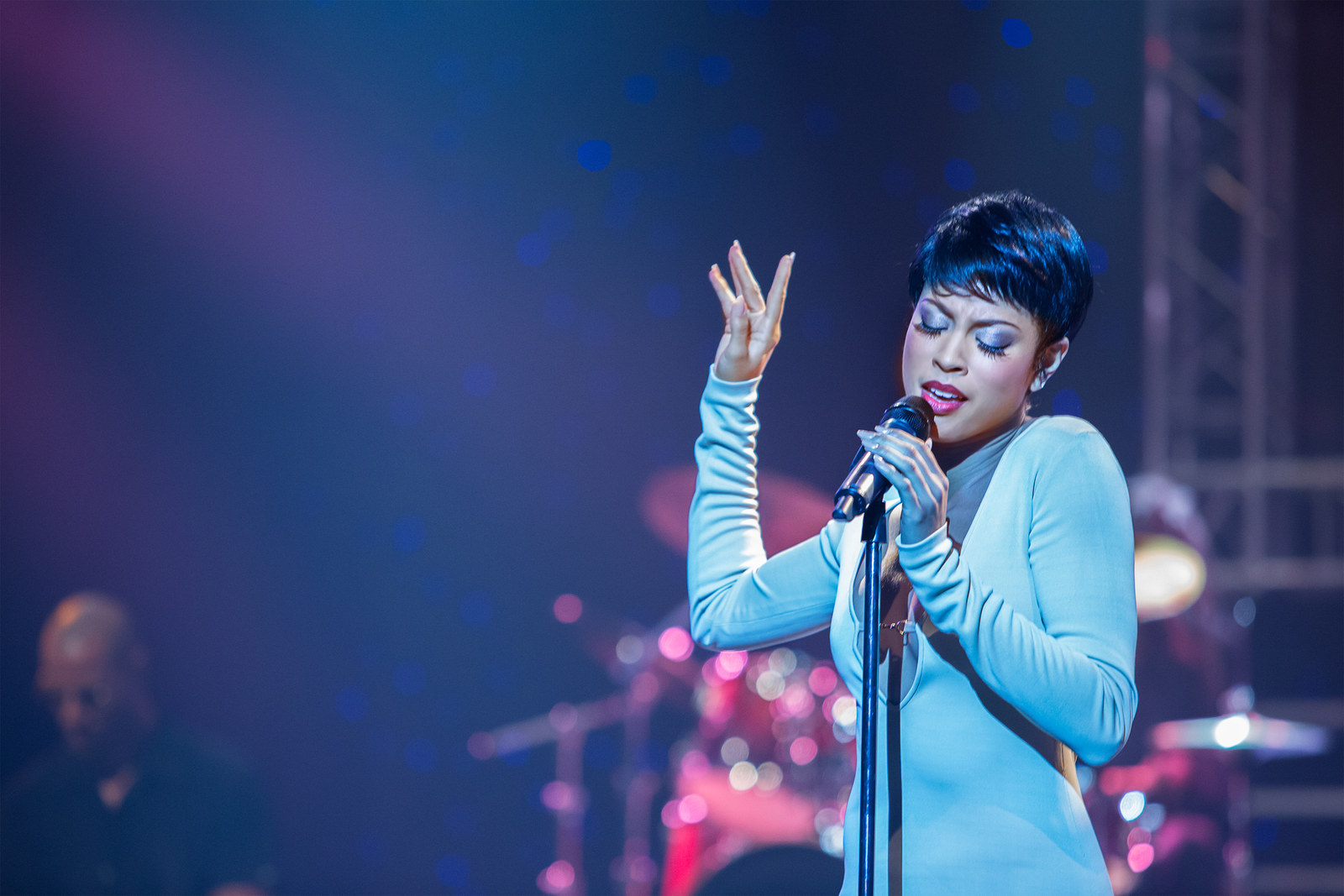
Steel Magnolias’ numbers and accolades — Emmy, SAG, and Critics’ Choice Award nominations, seven NAACP Image Award nominations and two wins — also echoed, tellingly, a previous success of Lifetime’s. In 2006, the network had scored a massive hit with another film centered on a black woman, The Fantasia Barrino Story: Life Is Not a Fairy Tale, directed by Debbie Allen and starring Barrino as herself in the rags-to-American Idol biopic. With 6.6 million viewers, The Fantasia Barrino Story became Lifetime’s highest-rated original film of the 2000s and the second-most-watched film in its history. Lifetime’s audience was clearly invested in the lives and stories of black women.
After Steel Magnolias, Lifetime showed more commitment to producing films focused on black women. In addition to Betty and Coretta (2013), starring Angela Bassett and Mary J. Blige, and The Gabby Douglas Story (2014), Lifetime produced a trio of ‘90s music biopics: Aaliyah: The Princess of R&B (2014), Toni Braxton: Unbreak My Heart (2016), and Whitney (2015), Bassett’s directorial debut.
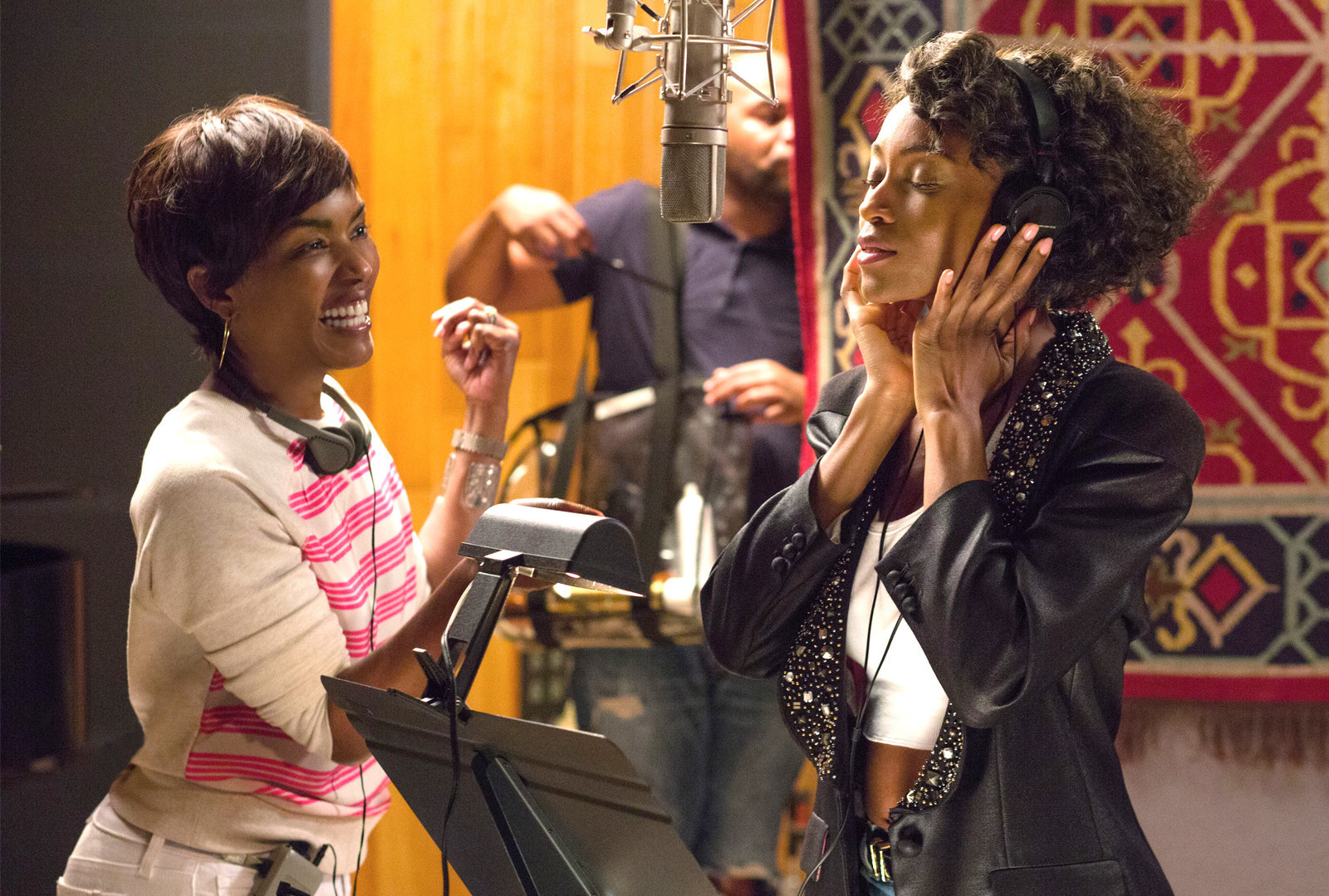
Whitney was the highest rated of the three, also earning Bassett an Outstanding Directorial Achievement in Movies for TV and Miniseries nomination at the DGA Awards. Whitney centers on the relationship between Whitney Houston and Bobby Brown, and exceeds the average Lifetime biopic in its strong musical sensibility and its two leads’ palpable chemistry. “The one directive I got from Lifetime,” Bassett told me in a phone interview, “was push the limits. I wanted it to look as much like a feature film as we could make it look. I wanted it to sound like that. I wanted subtlety in the performances. I wanted passion. That’s what I was going for, and I didn’t want to move on until I got it.”
Lifetime’s '90s fervor expanded into the “Unauthorized” stories of Beverly Hills, 90210, Melrose Place, Saved by the Bell, and Full House, all met with some millennial attention and critical pans. But the imperative to blend high and low commentary in the ghosts of the 1990s became a genuinely interesting “punk move” in director Mary Harron’s Anna Nicole, starring Agnes Bruckner as Anna Nicole Smith.

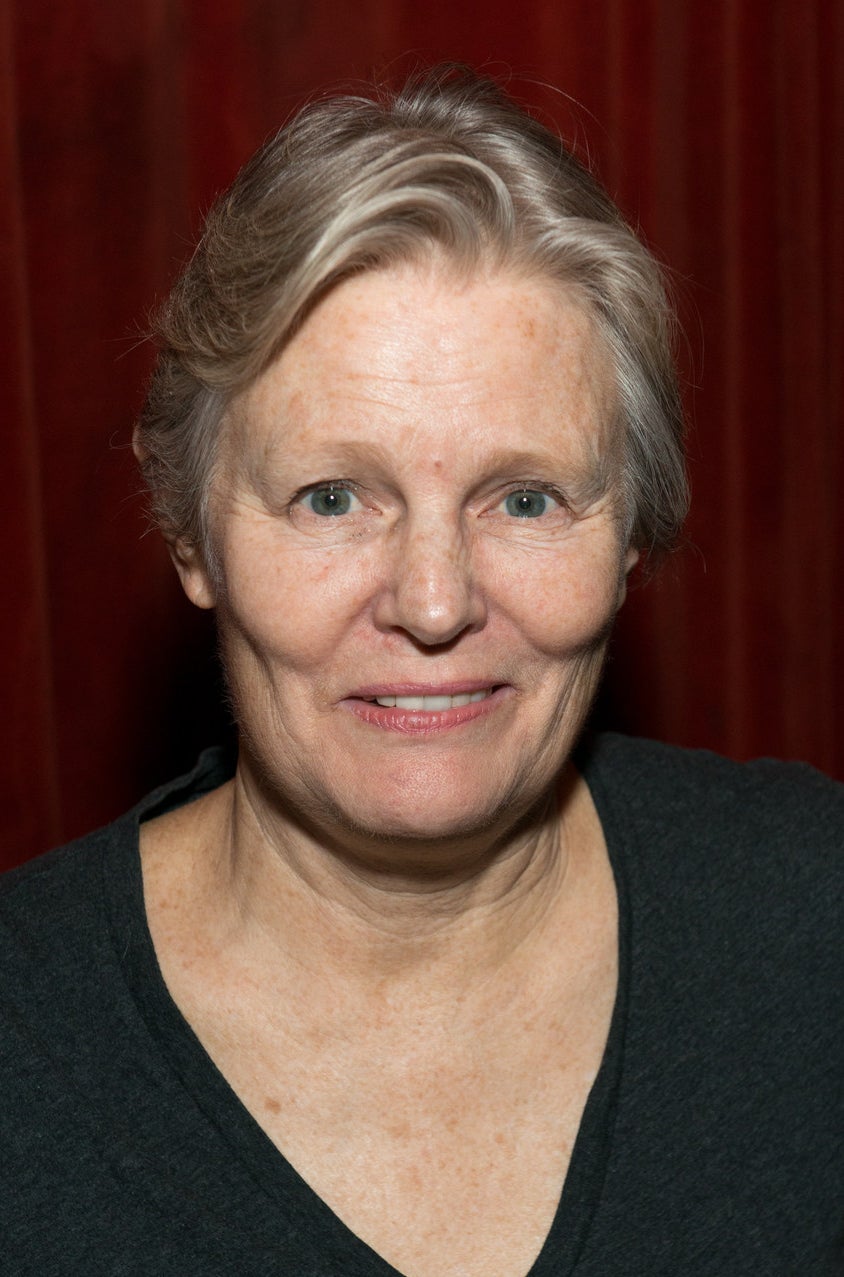
Anna Nicole Smith is a singularly ideal Lifetime-biopic subject. As a high school dropout who became an international celebrity, eventually to be embroiled with a Supreme Court case — the Notorious RBG herself wrote the majority opinion on the ruling — she represents the ultimate convergence of American high and low culture. As Harron brilliantly conceives it, Anna Nicole is as much a film about the construction of gender as it is about a rise to notoriety. In the ways it challenges that which we dismiss as “trash” and why, it becomes a nearly pitch-perfect execution of Lifetime’s contemporary imperative at large. It was no surprise, then, that Anna Nicole joined other standouts Flowers in the Attic (at 6.1 million premiere viewers, the second most watched Lifetime original film of the 2010s), Bonnie & Clyde, and Return to Zero in Lifetime’s record 17 Emmy nominations of 2014.
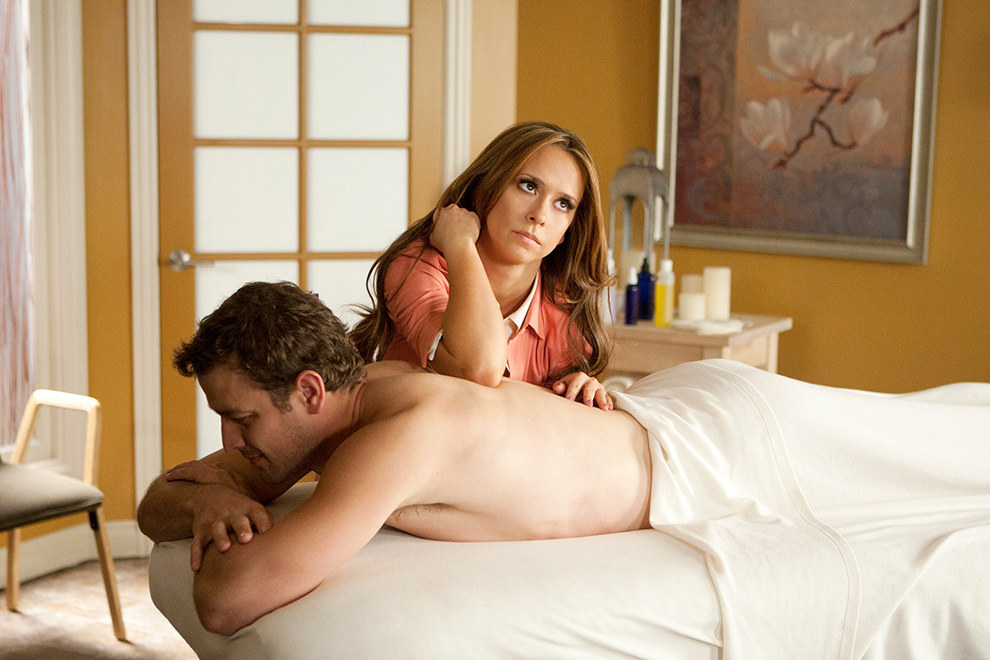
Between 2012 and 2014, as original TV programming across the board entered an era of “peak TV” saturation, Lifetime also declared an intent to compete in the rush toward antiheroine storytelling. The Client List (a series adaptation of the eponymous 2010 Lifetime film) premiered in 2012, created by Suzanne Martin and starring Jennifer Love Hewitt as Riley, a suddenly single mother who gets a job at a “happy endings” massage parlor — and likes it.
The Client List is like a blue-collar Weeds: Tragedy forces a thirtysomething white wife and mother out of heteronormative stability, and she transgresses to survive. The Client List is most notable for its unique extended portrait of middle-class sex work, including an internal variety of opinions on the subject: Riley isn’t ashamed of what she’s doing, but she also has good reason to be terrified that news of her career will get around town. Like Army Wives’, The Client List’s Southern setting encompasses body, age, and racial diversity, potent sexuality, and female solidarity; unlike Army Wives, the women of The Client List are often paid for their emotional labor. Both ratings and quality took a dip in The Client List’s second season, which were among the reasons for its cancellation in 2013, but the series remains admirable for its acknowledgment of sex work as a dually relevant and divisive feminist issue.
Lifetime also premiered Desperate Housewives creator Marc Cherry’s new confection Devious Maids in 2013, an adaptation of the telenovela Ellas son… la Alegría del Hogar, with Eva Longoria attached as executive producer. It met a mixed reception: Latinas criticized the series as a “wasted opportunity” for failing to widen Latinas’ pop-culture portrayal past the stereotype of the help, prompting Longoria and Lifetime to defend Devious Maids’ three-dimensional characters in the first all-Latina ensemble on English-speaking TV. The series will begin its fourth season this summer.
Unreal argues, in the multiplicity of its characters, that there’s no feminist value to be found in decrying “that kind of girl.”
If Lifetime’s new executive team really wanted a series that would challenge its regressive image, it needed something bigger than Devious Maids’ middling reviews and ratings. Enter: Unreal. Unreal centers on the relationship between two cripplingly efficient, sadistically talented reality-TV producers, played like blades by Shiri Appleby and Constance Zimmer, who puppeteer the complex machine of Everlasting, a conspicuously Bachelor-like dating competition.
The parallel is pointed: Co-creator Sarah Gertrude Shapiro spent three years as an associate producer for The Bachelor, and Lifetime and A&E’s co-parent Disney also owns ABC, currently airing the 20th season of The Bachelor. Grantland’s Mark Harris called Unreal “the shrewdest brand extension of the year — the unexpected night bloom of a franchise so smart it’s even figured out how to monetize our contempt for it.”
Unreal combines provocative feminist meta-critique and high melodrama, creating a mise-en-abyme hyperreality that takes the motivations of two categories of women equally seriously: the show’s producers and its contestants. A less intelligent show might have reduced Everlasting’s contestants to slutty, shameless bimbos and its producers to haggard, sexless nerds, but Unreal’s complexity falsifies such a binary. Unreal argues, in the multiplicity of its characters, that there’s no feminist value to be found in decrying “that kind of girl.”
Critics took notice: Willa Paskin and Emily Nussbaum both called Unreal “irresistible,” the show has won two Critics' Choice Television Awards, it’s generating Emmy chatter, and Lifetime ordered a second season — premiering June 6 — within a month of the first’s release. In equal measures dark and brilliant, Unreal is to Lifetime what The Sopranos was to HBO, what Weeds was to Showtime, what Mad Men was to AMC: a pole that would vault an entire channel into new legitimization.
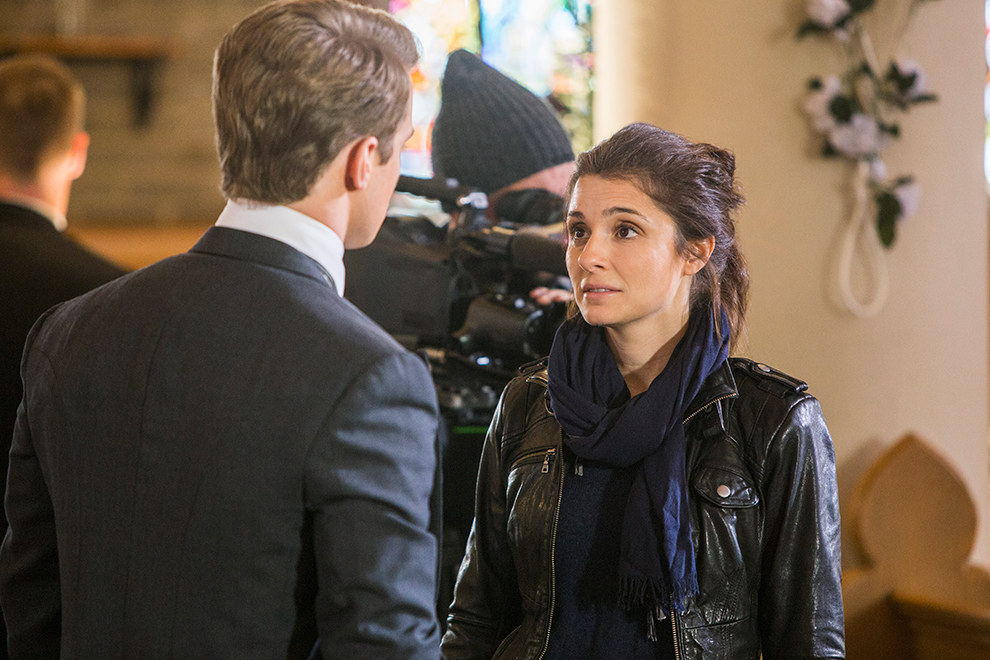
Unreal’s critical success allowed Lifetime to examine which of its assets were most valuable to that success — chief among them a certain self-awareness of Lifetime’s brand in the hands of talented female writers, directors, and showrunners. “In some ways I feel like I stumbled into this magical kingdom of all of these women who really want to hire female directors,” Shapiro told me. “They are behind this show. I hear stories from my other friends who have had pilots go other places, and it’s heartbreaking hearing what they go through compared to what my experience has been, which is just, like, unconditional, complete support at every turn.”
Indeed, hiring women has “actually [made] our content better,” said Liz Gateley, Lifetime’s EVP and head of programming. “Look at our top five movies of last year — the top five were all directed by women. If you look at Unreal, arguably our most important scripted series ever, it’s created by women and starring women.”
From 1994 to 2016, a whopping 73% of Lifetime’s 285 original films were directed or written by a woman.
Historically, the rhetoric surrounding Lifetime has failed to note the ways in which it's long prioritized the hiring of women in key creative roles. Currently, the DGA is being sued for gender-based discrimination, only 4% of major films of the last 13 years have been directed by women, and women comprised only 9% of directors and 11% of writers in the major films of 2015. By contrast, 22% of Lifetime’s original movies of the 2010s and 42% of its films in the last year were directed by women. Female writers have always dominated at Lifetime: Even going back as far as the 1990s, 60% of Lifetime’s films were written by women, up to 75% in the 2000s and 65% in the 2010s. From 1994 to 2016, a whopping 73% of Lifetime’s 285 original films were directed or written by a woman.
In 2015, Lifetime also launched Broad Focus, articulating a commitment to provide more jobs to women in film and TV. Broad Focus was the brainchild of Danielle Carrig, Lifetime’s senior vice president of publicity, and it’s an effort “to put a flag in the ground,” she told me. “It’s about tracking and keeping ourselves honest, talking the talk and walking the walk.” So far, Broad Focus has partnered with Geena Davis’s Bentonville Film Festival and the AFI Conservatory Directing Workshop for Women to increase opportunities for female filmmakers — and guaranteed a job at Lifetime to every graduate of the DWW.
“Hiring women works,” said Lopez. “Mentoring, internships, all those things are fine at a certain entry-place level, but the truth of the matter is people just want to go to work. Our North Star is: Give. Women. Jobs. That’s the only way it’s gonna change.”
Gender parity, Sharenow explained, is “an incredible point of pride for us as a company. I want to have our pride in this area be a beacon for the industry. A lot of those biases that people have against taking chances on women and hiring women — look over here, we’ve got some of the best stuff on TV, and it’s being recognized.”
“For the first time in my career, I was working on a set,” Melanie Aitkenhead said of her experience directing the Mother, May I Sleep With Danger? remake, “and nobody was being treated differently … I seriously called my friends and said, 'I worked on a movie, and none of the stuff that happens on that blog [Shit People Say to Women Directors] happened to me.'”
“When you’re in a situation where a whole industry is prejudiced against you, and somebody opens a window,” Shapiro said, “I mean, look, I’m mature enough to understand my position, that nobody wants a female director and female leads. And the thing is, somebody opened the door and asked me to come in, and it was not the door that I thought I wanted, but it was a really great person opening the door for me, and I’m so, so glad I did it.”
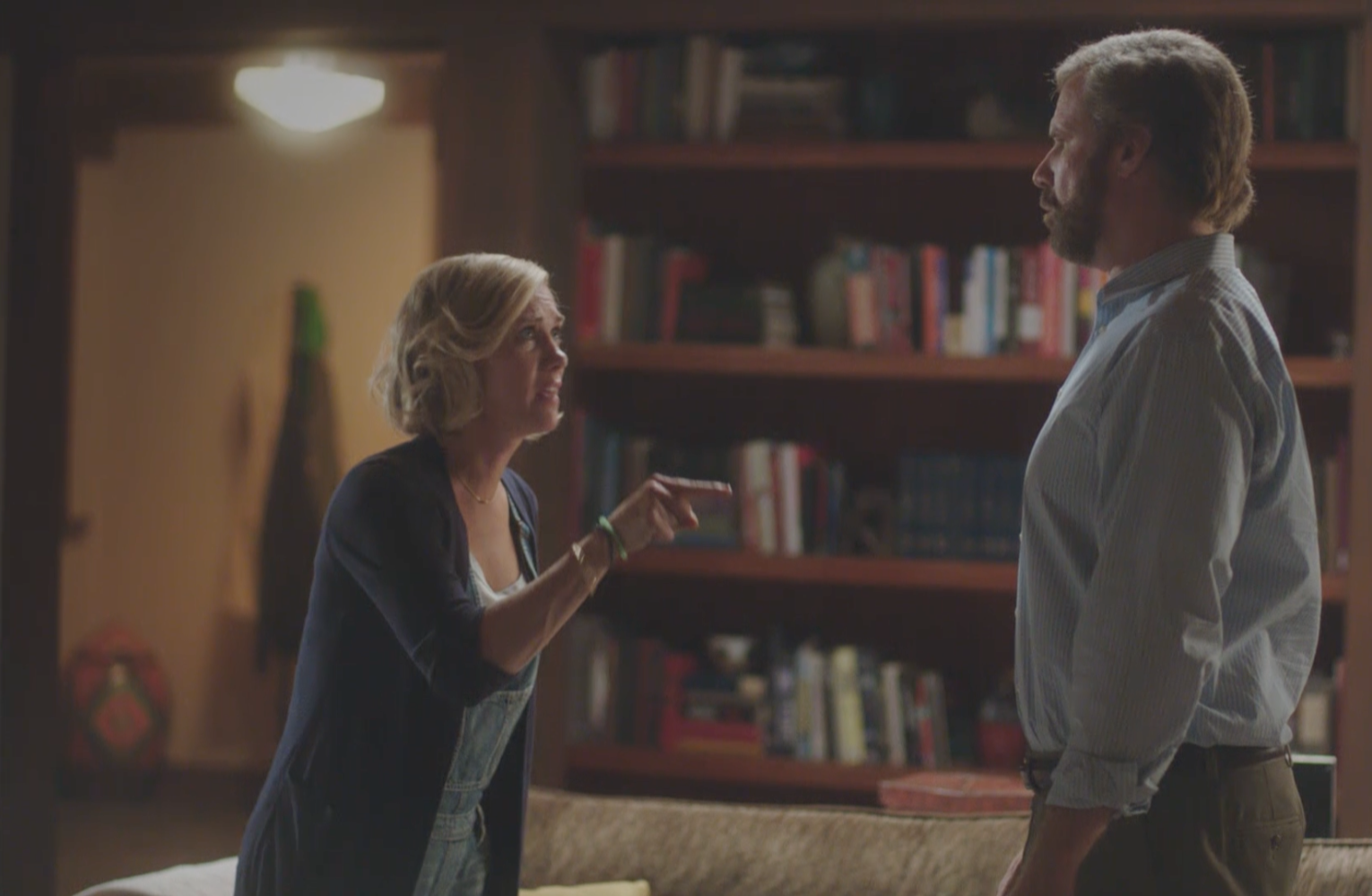
The long-term effects of Lifetime’s commitment to “be cultivating talent, to get to them early,” as Carrig describes Broad Focus’s AFI partnership, remain to be seen. But the network’s imperative to make younger, riskier content has certainly been reflected in its recent hires. One such project was 2015’s A Deadly Adoption, the first Lifetime film arguably conceived as an outright parody of the Lifetime film formula, starring Kristen Wiig and Will Ferrell and directed by Rachel Lee Goldenberg. Though A Deadly Adoption seemed to confuse many critics — everyone expected a straight comedy from Wiig and Ferrell even though Lifetime has veritably never produced one — it also generated enough buzz to make Lifetime consider poking more pointed fun at itself.
Extending this meta-flourish in summer 2016 will be Franco and Aitkenhead’s Mother, May I Sleep With Danger? “We are being loyal to the Lifetime brand in some ways while expanding it in others, which, I think,” Franco told me by email in his first interview about the film, “is exactly want they wanted from me.”
Though Franco has executive-produced the project, he picked three women from his many years of various university affiliations to helm it: Aitkenhead, who “was my directing student at USC, Amber [Coney, screenwriter] was an acting student at USC, and the DP, Christina Voros, went to NYU with me.”
“I have tons of talented female film students, but it seems that they are given less opportunities in the real world than their male peers,” Franco continued, “so, when I can, I support female filmmakers, especially when a project fits them so well.”


Did I mention that Spelling will return to star, and that the 2016 Mother, May I Sleep With Danger? will be a lesbian vampire movie? Lifetime in the 2010s has a refreshing sense of humor about itself and is using it to make some intriguing reflections on the Lifetime of the 1990s.
“I think we are embracing the cultural impact of Lifetime movies upon generations, and not being embarrassed by it,” Lopez said. “What we’re showing by doing these is, look where we were, and look where we are. It’s much more entertaining.”
Over the last 25 years, women have increasingly challenged elitist, patronizing impositions of guilt upon the pop culture that provides them with pleasure. At the same time, the scripted television landscape has become more crowded, forcing every cable channel to raise the median quality of its programming. The Sony hack, the DGA lawsuit, and the mainstreaming of feminism have all magnified attention upon Hollywood’s subtle and overt exclusions of women.
Bolstered by these forces, Lifetime’s new direction could mean that “television for women” is ready to make a harder case for its own value, ready to be more than the TV movie you can’t turn off but won’t tell anyone you watched. Over 25 years, Lifetime has arguably both popularized the cable genre of “women’s entertainment” and challenged that genre to expand. Unreal, A Deadly Adoption, and the upcoming MMISWD all spring from Lifetime’s own cheeky wink at its own cultural influence — we were always watching, even when we wouldn’t admit it. And while the rest of Hollywood wrings its hands about where to find female content creators, Lifetime’s hiring them.
The struggle to find places for women to create credible, complex stories is far from over, but Lifetime has become a home for many to thrive. And we must continue fighting to build more spaces for ourselves in popular entertainment.
Toward the end of our interview, I asked actress-director Bassett what our imperative is, in 2016, as intersectional feminists working together to change the numbers for women in Hollywood.
She paused, thinking. “Keep your head down and keep working diligently. Lift your head up and let your voice be heard loudly,” she said in that regal, velvety, unforgettable voice. “To work and to speak. To work and to speak.”
Laura Goode's first novel for young adults, Sister Mischief, was released by Candlewick Press in 2011, was a 2012 Best of the Bay pick by the San Francisco Bay Guardian, and was a selection of two ALA honor lists for outstanding feminist and GLBTQ literature. She wrote, with Meera Menon, and produced the feature film Farah Goes Bang; FGB premiered at the 2013 Tribeca Film Festival and won the inaugural Nora Ephron Prize from Tribeca and Vogue. Her collection of poems Become a Name is forthcoming from Fathom Books in 2016. Her work has appeared in publications including ELLE, Refinery29, New York Magazine, The Rumpus, Los Angeles Review of Books, The Believer: Logger, Boston Review, IndieWire, and Bright Ideas, where she is a contributing editor. She received her BA and MFA from Columbia University, and lives in San Francisco. www.lauragoode.com
